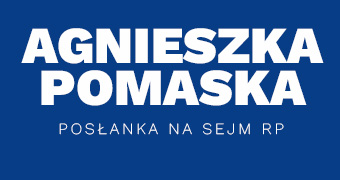
Sunday’s parliamentary elections in Hungary were won by Viktor Orban’s Fidesz party for the fourth time in a row. The outcome was decided much earlier, at the stage of the election campaign, believes Agnieszka Pomaska, MP from the Civic Coalition in Pomerania, who, as a member of the OSCE observation mission, participated in the monitoring of the election process.
The coalition of Fidesz and the Christian-Democratic People’s Party (KDNP) received almost 54 percent of votes, while the united opposition received more than 34 percent of votes. The far-right Our Fatherland party also entered parliament with 6.3 percent, meaning that 155 MPs from Orban’s party will sit in the 199-seat parliament, giving it a constitutional majority.
The scale of Fidesz’s victory was surprising, given that only a few weeks ago polls indicated a slight lead for the united opposition. According to Agnieszka Pomaska, the size of the victory was determined by Prime Minister Orban’s skilful handling of the situation of the war in Ukraine.
– We should also remember that elections are not decided on the day of the election and right before it, but much, much earlier – emphasizes the MP in a conversation with zawszepomorze.pl. – If we talk about various kinds of irregularities, electoral fraud, it happens during the election campaign. It is enough to look at the ranking of media freedom. Hungary used to be at the top of it, it was in 10th place. Currently it is in 92nd place.
In addition to the opposition’s limited access to the media, the other major factor was Fidesz’s use of a government database related to the covid-19 vaccination to reach voters directly.
– In normal, democratic countries, this type of situation could not have taken place,’ argues Agnieszka Pomaska.
The Gdańsk MEP feels embarrassed by the words of the Hungarian Prime Minister, who after the announcement of the preliminary results made a speech in which he enumerated the enemies of Hungary, and among them mentioned the President of Ukraine Volodymyr Zelensky.
– I would expect from the politicians of the ruling party in Poland, from Prime Minister Morawiecki himself, but also from Zbigniew Ziobro, who congratulated Orban, not only to cut himself off, but to condemn what Orban said,” the Pomeranian KO MP appeals.
Asked what conclusions the Polish opposition can draw from the fact that despite agreeing on a common list, the democrats in Hungary lost, Agnieszka Pomaska said:
– The main lesson is that opposition unity must be authentic. In Hungary, the opposition created common lists, but later, during the campaign, the opposition parties moderately supported each other. This was due, among other things, to the fact that they were extremely different: from the left to the right. And I think the disparity was just too great. This is something we have to remember when thinking about future elections in Poland and creating possible coalitions.
source: zawszepomorze.pl

